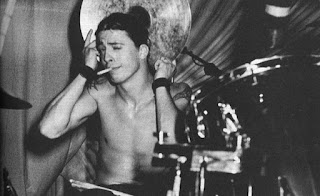About
Article about band
Popular Posts
-
The Stone Roses are an English rock band formed in Manchester in 1983. They were one of the pioneering groups of the Madchester mo...
-
Nirvana was an American rock band that was formed by singer and guitarist Kurt Cobain and bassist Krist Novoselic in ...
-
Oasis were an English rock band formed in Manchester in 1991. Developed from an earlier group, the Rain , the band originally cons...
-
System of a Down , often shortened to SOAD or System , is a four-piece Armenian-American rock band formed in 1994 in Glendale, Ca...
-
The Smiths were an English rock band formed in Manchester in 1982. The band consisted of vocalist Morrissey , guitarist Johnny M...
-
Ramones were an American punk rock band that formed in the New York City neighborhood of Forest Hills, Queens , in 1974. They are of...
-
U2 are an Irish rock band from Dublin . Formed in 1976, the group consists of Bono (vocals and guitar), The Edge (guitar, keyboa...
-
The Doors were an American rock band formed in 1965 in Los Angeles , with vocalist Jim Morrison , keyboardist Ray Manzarek , guitar...
https://twitter.com/muchamadxirfan
https://www.facebook.com/muchamad.irfan.14
Labels
- Dave Grohl (1)
- Krist Novoselic (1)
- Kurt Cobain (1)
- Morrissey (1)
- NIRVANA (1)
- OASIS (1)
- Ramones (1)
- Ramones Band (1)
- SOAD (1)
- SYSTEM OF A DOWN (1)
- The Doors (1)
- The Doors Band (1)
- The Ramones (1)
- The Smiths (1)
- The Stone Roses (1)
- U2 (1)
- U2 Band (1)









